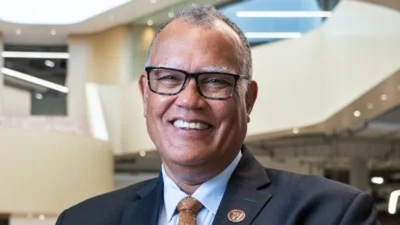Paul Triolo, Partner of DGA–Albright Stonebridge Group | Official Website
Paul Triolo, Partner of DGA–Albright Stonebridge Group | Official Website
Paul Triolo, a partner at DGA–Albright Stonebridge Group, said on X that new foreign entity of concern restrictions and the broader use of the Entity List could increase compliance burdens and complicate ownership assessments, including for projects in Marshall.
"Ownership is not always clear, and the rule imposes huge burdens on US companies, in distinct contravention of the traditional intent of the EAR, on due diligence for clients inside and outside China," said Triolo. "While the 50 percent rule has held for OFAC, it has not been used until now for Entity List firms. The EL is now being used for large companies, many with subsidiaries having little or nothing to do with the reasons that led to the EL. It turns out the real world is quite complex."
The U.S. tax regime surrounding clean-energy incentives has recently been reshaped by the One Big Beautiful Bill Act (OBBBA). According to an analysis by K&L Gates, the OBBBA broadens foreign entity of concern (FEOC) requirements originally introduced under the Inflation Reduction Act for clean-vehicle tax credits. These requirements now apply to credits under sections 45X, 45Y, 48E, and others, imposing new ownership, licensing, and "material assistance" tests that raise compliance complexity for clean-energy projects.
Industry reporting in mid-2025 indicated that the expanded FEOC/"prohibited foreign entity" rules could affect "thousands" of previously unlisted subsidiaries across nearly 100 jurisdictions. This would add to an existing baseline of approximately 3,400 parties on the U.S. Entity List (around 1,100 of them Chinese) prior to the change.
According to Norton Rose Fulbright’s "Working Through the FEOC Maze" piece, new rules for power and storage projects beginning after July 4, 2025 impose a phased domestic-content threshold. For projects starting in 2026, the manufactured-product cost fraction from non-FEOC sources must be at least 40% for power projects (rising to 60% for those starting after 2029), and 55% for storage projects (rising to 75% after 2029). Compared to prior U.S. export/regime frameworks—which lacked this tiered trace-value test and recapture risk tied to foreign-entity agreements—the compliance burden is substantially higher and timelines compressed.
Triolo serves as Partner, Senior Vice President for China, and Technology Policy Lead at DGA–Albright Stonebridge Group. He advises clients on global tech/regulatory issues; before joining the firm he was founder and Managing Director of the Geo-Technology practice at Eurasia Group and spent over 25 years in senior U.S. government roles analyzing China’s rise in tech.
The advisory firm DGA–Albright Stonebridge Group (ASG) is part of DGA Group's global strategy and diplomacy-commercial advisory business. Originally formed in 2009 by merging The Albright Group and Stonebridge International, ASG became a founding member of DGA Group in 2021. The firm helps clients navigate policy, markets, and risk through a senior-government-and-business-level network across more than 40 countries.



 Alerts Sign-up
Alerts Sign-up